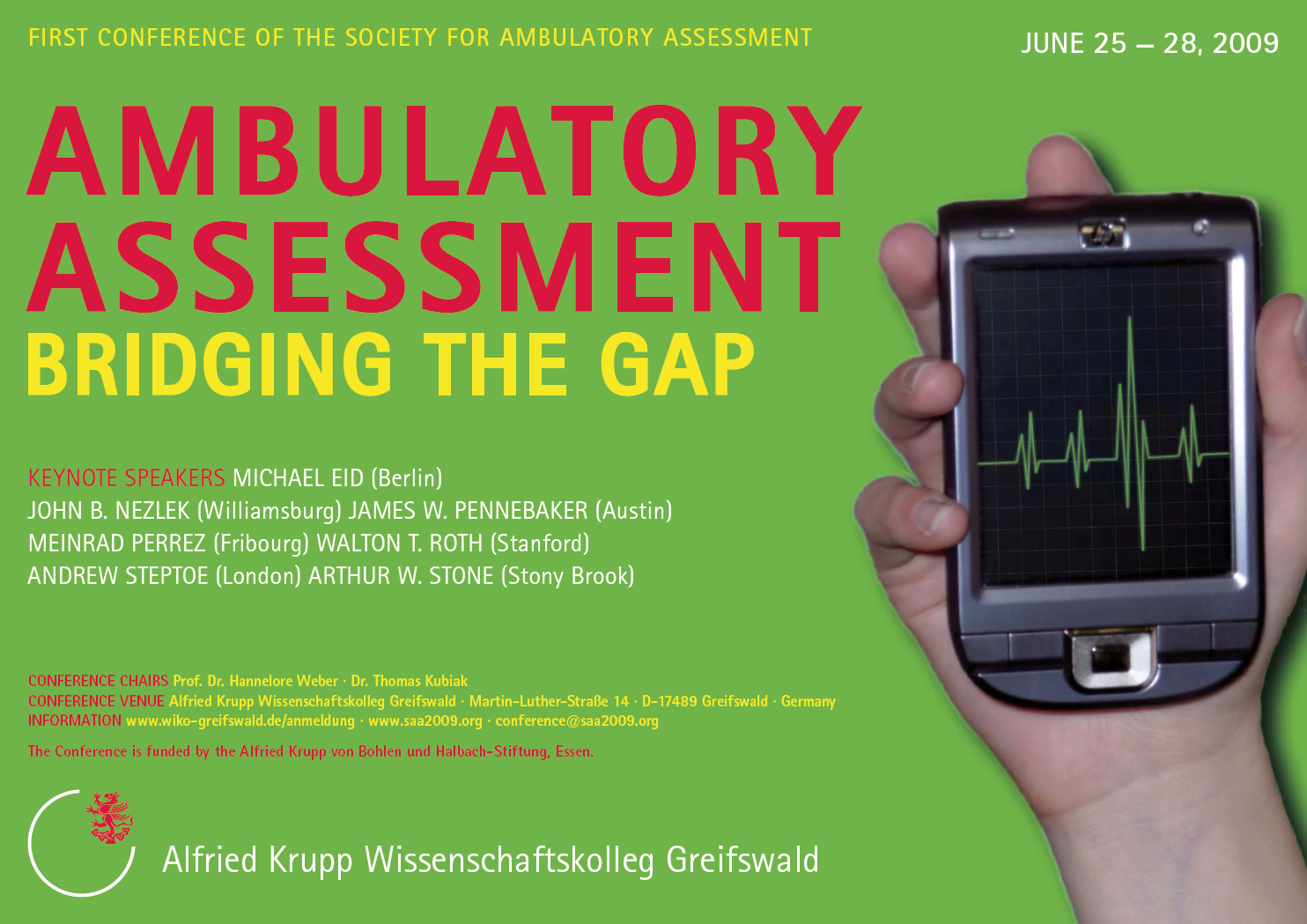For decades, laboratory research has been the predominant methodology in the scientific study of momentary experience and human behavior. However, while experimental laboratory research is highly valuable and necessary to determine causal relationships, its main limitation is a reduced ecological validity. Ambulatory Assessment, a term coined by the German psychologist Jochen Fahrenberg, refers to the use of field methods to assess ongoing behavior, physiological reactions, and environmental aspects in naturalistic or unconstrained settings. Ambulatory Assessment designates an ecologically relevant assessment perspective that aims at understanding bio-psycho-social processes as they naturally unfold in time and in context, thus bridging the gap between laboratory research and real-life.
The conference aims at bringing together junior and senior scientists from different fields of research in order to promote scientific exchange and to stimulate research using Ambulatory Assessment. The program comprises state of the art keynote lectures by renowned experts in the field as well as a broad range of symposia and a poster presentation.
Scientific Chairs:
Prof. Dr. Hannelore Weber (Greifswald)
Dr. Thomas Kubiak (Greifswald)

